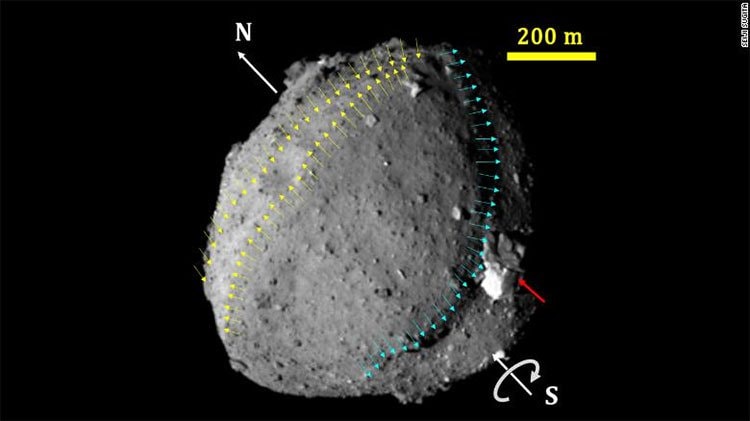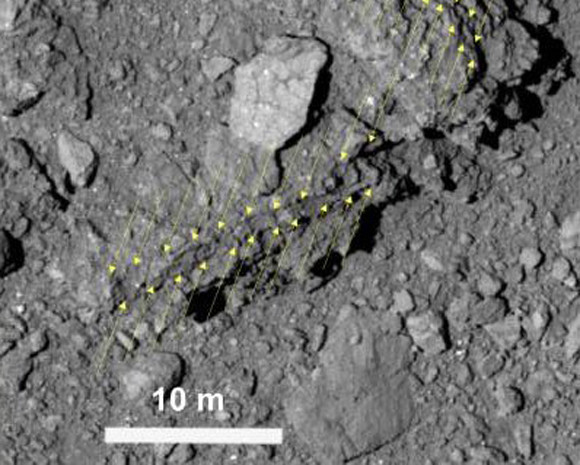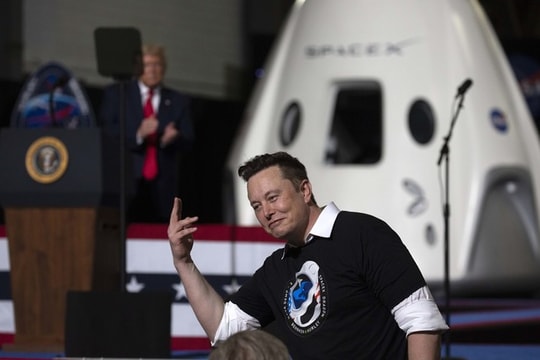Japanese spacecraft discovers surprise 300 million km from Earth
The unmanned spacecraft Hayabusa 2 has made a surprising discovery a month after successfully landing on an asteroid 300 million kilometers from Earth.
According to CNN, Japanese scientists said they analyzed a series of photos and data sent back by the Hayabusa 2 probe from the Ryugu asteroid and discovered unexpected signs.
 |
Asteroid Ryugu is 900 meters in diameter. |
“The meteorite did not contain as much water as we expected. Ryugu is much drier,” said scientist Seiji Sugita from the University of Tokyo in an initial report.
“This meteorite is only about 100 million years old. This suggests that the larger bodies from which Ryugu emerged were also water-poor,” Sugita said.
The discovery is considered significant because all of Earth's water is believed to have come from meteorites floating in space.
“This discovery helps us assess the chemical composition of the early Solar System, as well as has implications for the search for extraterrestrial life,” Sugita added.
“There are many other solar systems out there and to find life we have to be heading in the right direction. This discovery helps us narrow down which solar systems have the most potential.”
 |
Analysis shows that Ryugu does not contain as much water as scientists thought. |
Some scientists expressed disappointment, but the fact that the Ryugu meteorite is relatively dry also raises other questions.
“We thought it was the biggest elephant, but we found the smallest,” said scientist Matthew Genge. “It was unexpected, but it was valuable. How did the elephant get so small?”
“Understanding why this meteorite became so dry is also important to better understand how life originated on Earth.”
The Hayabusa 2 probe will continue to send images and measurements of the asteroid back to Earth. It will return to Earth in late 2020 with samples.
“When we bring samples back to Earth, we will know the answer. The good news is that the spacecraft has collected some of the first samples,” Sugita said.



